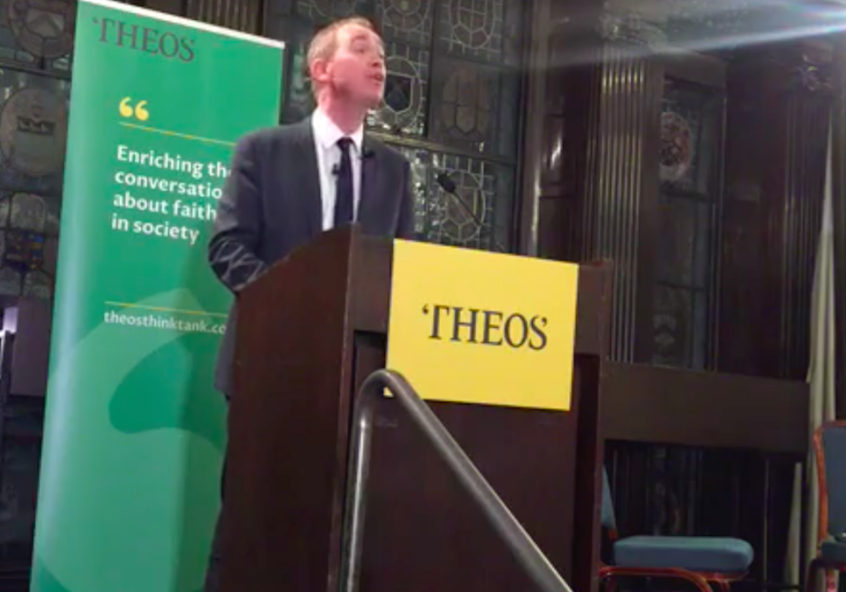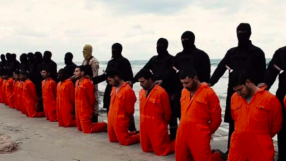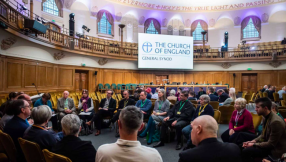This was Tim Farron unleashed.
A diminutive figure, cruelly mocked in the House of Commons as 'tiny Tim' – the crippled child from Charles Dickens' A Christmas Carol – Farron delivered an impressive defence of liberalism, and implicitly, his own predicament last night.
Although it was slightly rambling with fumbling, awkward jokes about third division football and '90s pop culture, Farron's lecture for Theos think tank was, you sense, how he always wanted to be.
Full of conviction, this was Farron the philosopher. At times, Farron the preacher. And despite his protestations, Farron the martyr.
It is not hard to see why his leadership of the Liberal Democrats failed to cut through. Aside from the merciless questions about gay sex, which polling showed didn't actually affect voters choices, he lacks the presence and charisma to stand against the overwhelming tide of populism and tribalism engulfing the post-Brexit era of politics.
But despite being small in stature politically, Tuesday night's lecture was the start of Farron's emergence as a titan in the debate around faith and politics.
As was pointed out afterwards, he will now take on Alastair Campbell's mantle in that no discussion about religion and politics will be possible without reference to Farron.
Like it or not, those brief weeks where he was hounded during the 2017 general election campaign will define him. He seems resigned to that fact. 'It now gives me the chance to challenge the tyranny of opinion, to seek to redeem liberalism,' he said of his resignation.
And that is how it seems he will spend the rest of his career – as a dogged defender of both his faith and his liberalism.

Farron's main thesis last night was that Christianity spawned liberalism but both have eaten themselves as they gained power.
'Although liberalism has won, it is now behaving like the established church of the [Roman] empire in the 4<sup>th and 5<sup>th centuries,' he said. 'It has gained ascendancy and lost itself in the process. It isn't very liberal any more.'
Himself free from the mantle of power, Farron landed jabs at secularism, the Church of England and atheism.
The idea of neutral secular public space 'is not only clearly prevalent, but staggeringly arrogant – and obviously wrong,' he said. The idea of an established church is 'waste of a church', he added. 'A church in the state is good, the state in the church is bad. Really bad. It pollutes the message of that church. It compromises it. Weakens its witness.'
And drifting into Christian apologetics, he said 'atheism is not the absence of belief, it is a belief in absence'.
It was at this point we saw preacher Farron, giving an impassioned defence of his deeply held Christian faith, to the extent that one audience member wondered when the altar call would be.
Perhaps most interestingly was his notion there is no such thing as 'shared values' – an idea both the Archbishop of Canterbury and David Cameron, albeit in very different ways, have sought to promote.
'We don't really have shared values. There is no unifying set of British values. It's a myth,' he said. When people talk of shared values 'what they mean is "these are my values – and I am going to act as though they are also yours, and will demonstrate contempt for you if you depart from them",' he said.
'It's time to be honest with each other. We do NOT have shared values and the assumption that we do is dangerous.'
While Farron may have imagined spending his political career fighting the Brexit vote he obviously detests, he is a martyr at the hands of a regime imposing this myth of shared values on those who do not share them.
As the case study of liberalism gone wrong, he is destined to spend the rest of his career fighting what he describes as 'the tyranny of opinion'.
That may be no bad thing. As Barack Obama's former faith adviser Michael Wear pointed out, this is needed not only in the UK but in the US as well.
The dictators of tyranny need an opponent. In Tim Farron, they may have found a challenger.
You can read Tim Farron's lecture in full here and our report in advance of it here.













